|
||||||||
|
|
|
2017-01-30 ArtNo.45919
◆Review:The baptism of the Holy Spirit (Sabbath)
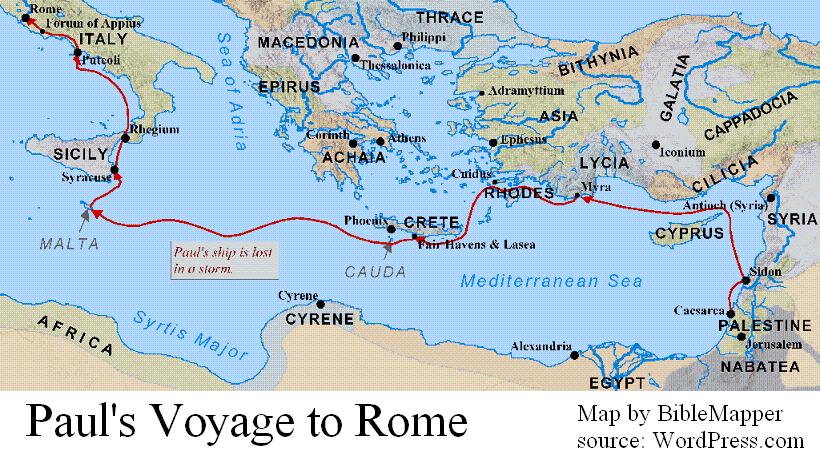 Paul, who had completed his third missionary journey and had returned to Jerusalem, was bound and handed to the Gentiles just as the prophet Agabus had predicted. However, he achieved successfully his original purpose, that is, his evangelism in Rome, on the pretext to appeal to the emperor. ○Paul was farewelled by believers in Sidon 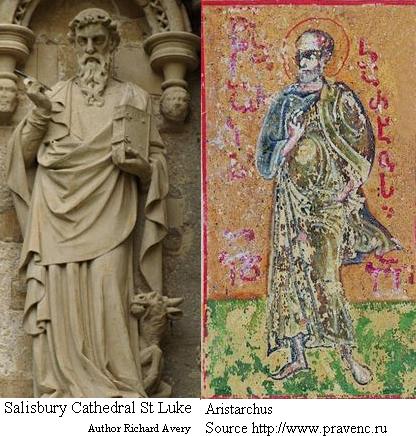 The convoy led by a centurion named Julius, who belonged to the Imperial Regiment, boarded a ship from Adramyttium, Luke, the author of the Acts, and Aristarchus, a Macedonian from Thessalonica, also boarded the ship accompanied Paul. The next day they landed at Sidon; and Julius, in kindness to Paul, allowed him to go to his friends so they might provide for his needs. (Acts 27:1-3) ○Shipwrecked on Malta Island 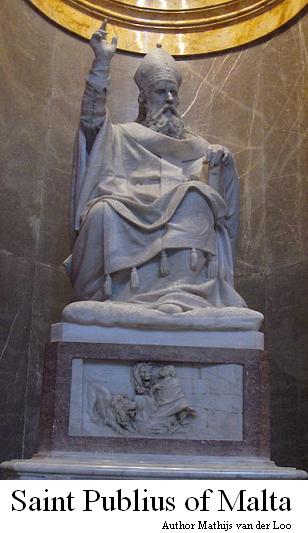 They boarded another ship from Alexandria at Myra in Lycia and made slow headway for many days along the southern shore of the Anatolian peninsula and arrived at Cnidus. When they sailed along the shore of Crete, a wind of hurricane force swept down from the island. After passing the lee of a small island called Cauda, they took such a violent battering from the storm that the next day they began to throw the cargo overboard. On the third day, they threw the ship's tackle overboard with their own hands. On the fourteenth night the sailors sensed they were approaching land. In an attempt to escape from the ship, the sailors let the lifeboat down into the sea, but the soldiers cut the ropes that held the lifeboat and let it fall away in order to stop for the sailors to desert the ship. When they had eaten as much as they wanted, they lightened the ship by throwing the grain into the sea. They saw a bay with a sandy beach, where they decided to run the ship aground if they could. Although the ship struck a sandbar and ran aground, but everyone jumped overboard and swam or was to get there on a plank and altogether 276 people on the ship reached land in safety. Once safely on shore, they found out that the island was called Malta. Publius, the chief official of the island, welcomed them to his home and for three days entertained them hospitably. (Acts 27:4-28:7) ○Romans went out and welcomed Paul 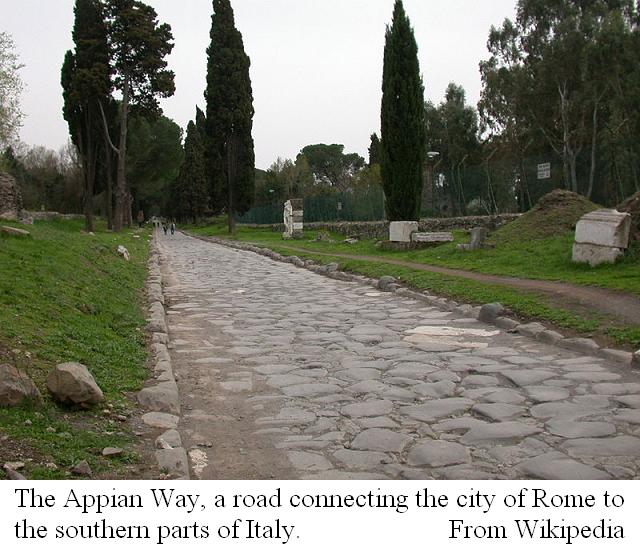 After three months they put out to sea in an Alexandrian ship, passed through Syracuse of Sicily and Rhegium of the south end of Italian Peninsula and arrived in Puteoli located along the west coast of central Italy. There Paul and others found some believers who invited them to spend a week with them. And so they came to Rome. The believers there had heard that Paul and his companions were coming, and they traveled as far as the Forum of Appius and the Three Taverns to meet them. When they got to Rome, Paul was allowed to live by himself, with a soldier to guard him. Three days later Paul called together the leaders of the Jews. When they had assembled, Paul explained the circumstances that he had been escorted to Rome in order to appeal to the emperor. Then they replied, "We have not received any letters from Judea concerning you, and none of the brothers who have come from there has reported or said anything bad about you. But we want to hear what your views are, for we know that people everywhere are talking against this sect." Since then they arranged to meet Paul on a certain day, and came in even larger numbers to the place where he was staying. From morning till evening he explained and tried to convince them about the way of Jesus. Some were convinced by what he said, but others would not believe. ○God's salvation has been sent to the Gentiles 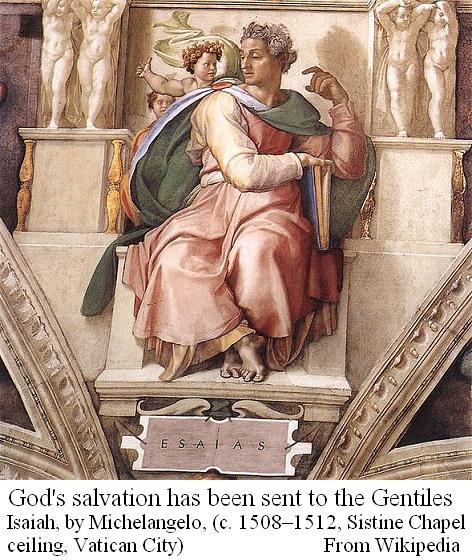 They disagreed among themselves and began to leave after Paul had made this final statement: "The Holy Spirit spoke the truth to your forefathers when he said through Isaiah the prophet: " 'Go to this people and say, "You will be ever hearing but never understanding; you will be ever seeing but never perceiving." For this people's heart has become calloused; they hardly hear with their ears, and they have closed their eyes. Otherwise they might see with their eyes, hear with their ears, understand with their hearts and turn, and I would heal them.' "Therefore I want you to know that God's salvation has been sent to the Gentiles, and they will listen!" (Acts 28:25-28) (The initial copytext of "Acts of the Apostles" is completed here. However, the following 3 verses are added on some different manuscripts.) After he said this, the Jews left, arguing vigorously among themselves. For two whole years Paul stayed there in his own rented house and welcomed all who came to see him. Boldly and without hindrance he preached the kingdom of God and taught about the Lord Jesus Christ. (Acts 28:29-31) ○Recurrence of infighting between Hellenists and Hebraists in Rome 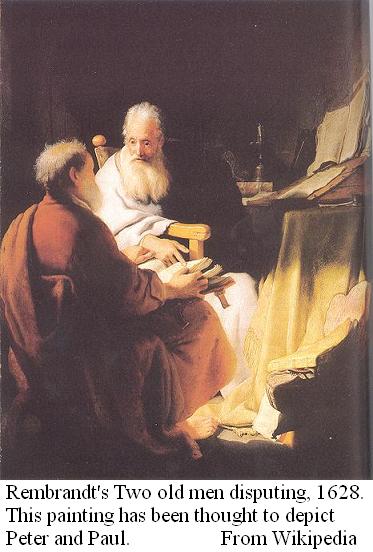 The emperor Claudius ordered all Jews to leave Rome in AD 49. There were at least two expulsions of Jews from Rome before this event. In 139 BC the Jews were expelled after being accused of aggressive missionary efforts. Then in AD 19 Tiberius once again expelled Jews from the city for similar reasons. However, there seems to still have been a robust community of Jewish believers when Paul arrived in Rome around AD 59. Perhaps, they were Judaists of gentiles, that is, non-circumcised Judaists. It seems that habitat segregations for Hellenists and Hebraists were taken place in Rome, too, at least three times for past 188 years. However, They were the exact opposite to what Paul had done in Jerusalem. And a pure Jewish community of Hellenists appeared in Rome just as a pure Christian church of Hebraists was born in Jerusalem. Therefore, it seems to have had an environment easy to accept "the way of Jesus which makes one right with God through faith but not by Mosaic law (Roma 3:28)" taught by Paul. But, because Jews returned to Rome and the Jerusalem Church also sent Peter and other Hebraist missionaries to Rome, the conflict between Paul and the Jerusalem Church surfaced in Rome, too. "The First Epistle of Clement," which the Church of Rome sent to the Church of Corinth at about 95-97 AD, hinted that severe tensions had arisen within the Church of Rome, due to the conflict between the two Apostles after Peter had come to Rome. (Paul's life and the real image of Jesus) ○James' belief is classified as 'Zheng zhong lai (正中来)' 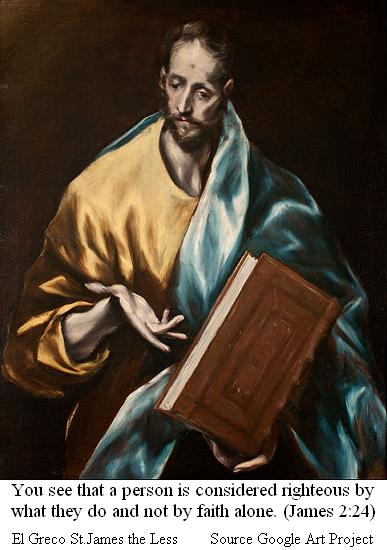 If the apostle for the Hellenists, Paul's true experience of the baptism with the Holy Spirit is classified as 'Jian zhong dao (兼中到)' or enlightenment achieved between universality (manifestation of Jesus) and particularity (the martyrdom of Stephen and the persecution against Hellenist believers) based on the theory of "Wu Wei Pian Zheng (五位偏正)," or "Five Relations between Particularity and Universality" developed by the Zen master Dong-shan Liao-jie (洞山了价:807-869), then the apostle for the Hebraists, James the Less' belief, "practice and faith are one" is classified as 'Zheng zhong lai (正中来)' or enlightenment emerging from universality. 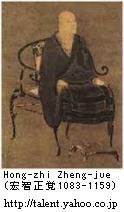 According to Mr. Chung-yuan Chang (1907-1988), Professor of Philosophy at the University of Hawaii at Manoa, 'Zheng zhong lai' refers to "The meaning of the word exists in no words (無語中有語)." This means that the awakened mind emerges from nothingness (空). Since non-action (静) is the same as nothingness (空), it follows, as DongShan(洞山)'s 'Five Levels of Achievement (五位功勲)' indicate, that from non-action, action emerges. When Hong-zhi Zheng-jue (宏智正覚1083-1159) was asked: "How is it that substance is lacking in the reality of purity (浄) and Void (空)?" he replied: "It is the instant of origin where refinement has not yet made any marks; and the moment when a message has not yet been conveyed." When one collects one's thoughts at the instant of 'wu (無)' , one will be led to 'sudden enlightenment (頓悟).' This is called 'Zheng zhong lai' or enlightenment emerging from universality. Niu-tou Fa-rong (牛頭法融) said: "The moment your mind is in action, is the same moment when there is no mind to act." 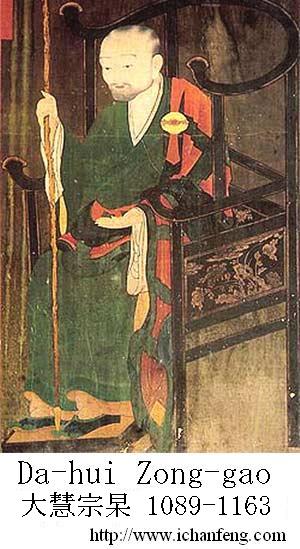 This theory of the mind-awakening was often criticised by the Lin-ji School (臨済宗) which opposed the idea of mere meditation. Hong-zhi's opponent, Da-hui Zong-gao (大慧宗杲1089-1163), favored the discipline of 'gong-an (公案)' training and opposed the approach of silent illumination (黙照). But Hong-zhi criticized Da-hui's discipline as 'kanhua Chan (看話禅:meditation of word).' The Cao-dong masters, such as Hong-zhi Zheng-jue, maintained that meditation is the fundamental approach to enlightenment, and it was Hong-zhi Zheng-jue wbo established the School of Silent Illumination. Over one hundred years later Dogen (道元1200-1253) studied Zen (禅) under Tian-tong Ru-jing (天童如浄1091-1228), the disciple of Hong-zhi. After his return he founded the school of Soto Zen (曹洞禅) based on the principle of 'Shikandaza(只管打坐: to practice zazen wholeheartedly)' and 'Shusho-itto(修証一等: the unity of practice and enlightenment)' in Japan. When professor Chang asked Sogen Asahina (朝比奈宗源1891-1979), the great master of Lin-ji School (臨済宗) in Engakuji (圓覚寺) of Kamakura (鎌倉), whether he thought that the silent illumination maintained by the School of Soto was the highest achievement of enlightenment, he answered, "Yes, it is!" But he stressed that illumination must be genuine. Thus what the Cao-dong School (Soto Zen) aims at is the same as that of the Lin-ji School. The only difference is that their approaches vary. 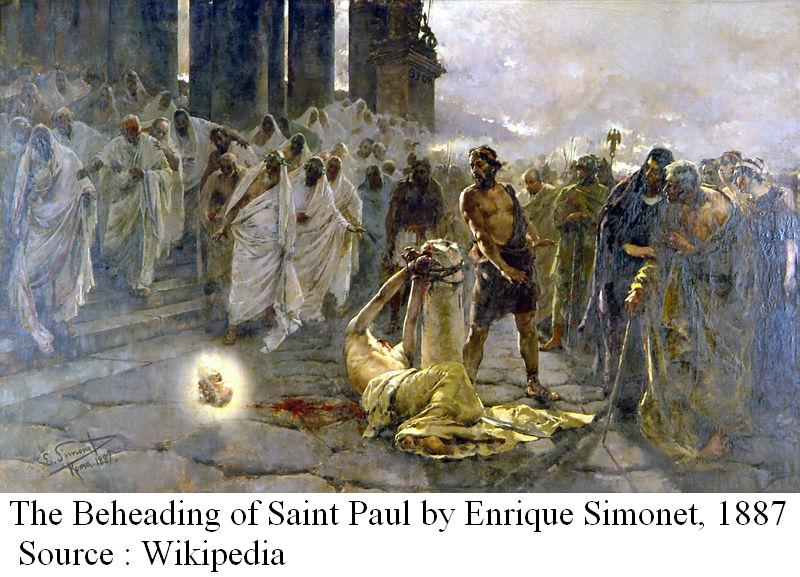 ○Sabbath In the last two verses, Acts of the Apostles described Paul's daily life in Rome; For two whole years Paul stayed there in his own rented house and welcomed all who came to see him. Boldly and without hindrance he preached the kingdom of God and taught about the Lord Jesus Christ. After two years of his arrival in Rome, Paul seems to have been martyred between AD 60-62. According to 'Acts of Paul,' because Crucifixion was adapted only to slaves or heavy criminal and Paul was a Roman citizen, so he was not crucified, but was beheaded after the trial. 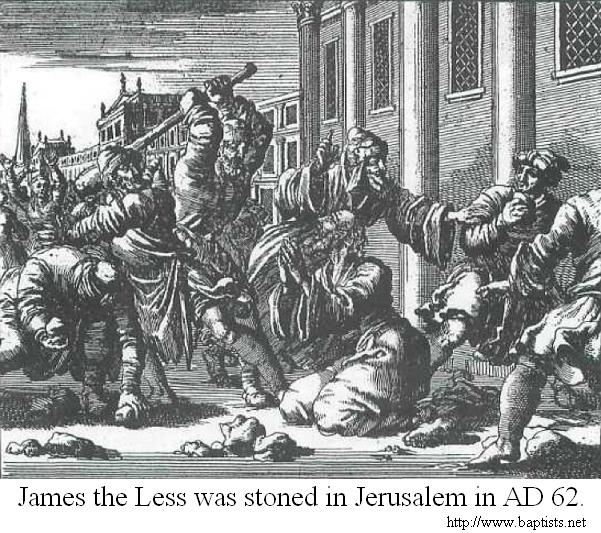 But Peter seems to have been crucified around AD 64 in Rome. James the Less was also martyred in Jerusalem in AD 62 after worsening relationship with the high priest. He was sentenced to be stoned by the Sanhedrin presided by the High Priest Annas. By the way, Emperor Nero and his predecessor Claudius ruled on appeals relating to the issues of Jewish religion at least two times before Paul's appeal. In AD 52, the High Priest Ananias was accused regarding a dispute settlement between the Jews and the Samaritans and was sent to Rome for trial, but was acquitted by the emperor Claudius. When King Agrippa II, in order to be able to oversee the court of the Temple, erected a high wall in the former Hasmonean castle, the Jews in turn erected a higher wall to cut off his view. When Roman governor Porcius Festus ruled on the controversy between Agrippa II and the priests in Jerusalem regarding this issue, he would not allow this latter wall to stand for military reasons; but he was just enough to permit the Jews to send an embassy to appeal against his decision to Nero, who decided in their favor. 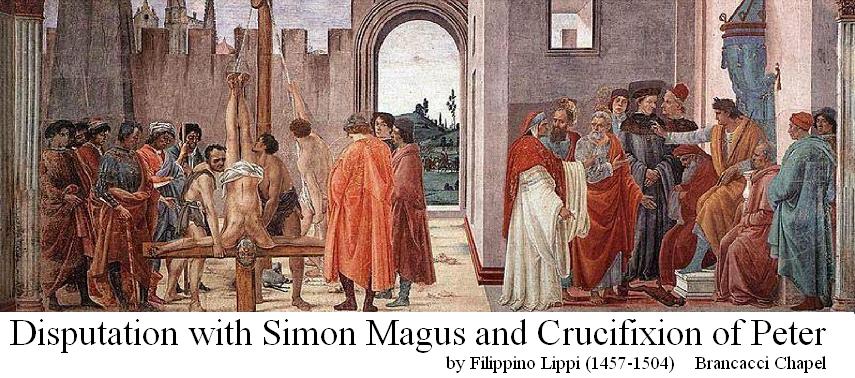 Judgments against these 3 appeals including Paul's one were all favor to the Jewish mainstream. Therefore Agrippa II seems perhaps to have considered such situation in Rome, when he said to Festus, "This man could have been set free if he had not appealed to Caesar." (Acts 26:32) In 64 AD, most of Rome was destroyed in the Great Fire of Rome. Then Nero ordered Christians to be executed for arson. Nero is said to have appointed a Samaritan called Simon Magus, who is often referred as the founder of Gnosticism and is also said to be one of the disciples of John the Baptist, as his religious adviser. And according to "The Jewish War" written by the Jewish historian Titus Flavius Josephus, Nero's beloved wife Poppaea Sabina was in intimate relationship with the Jewish community. Thus, a tradition, to say that because of Poppaea's good word for Jews, only Christians among Jews were targeted and executed, has existed for a long time. (Wiki in Japanese) 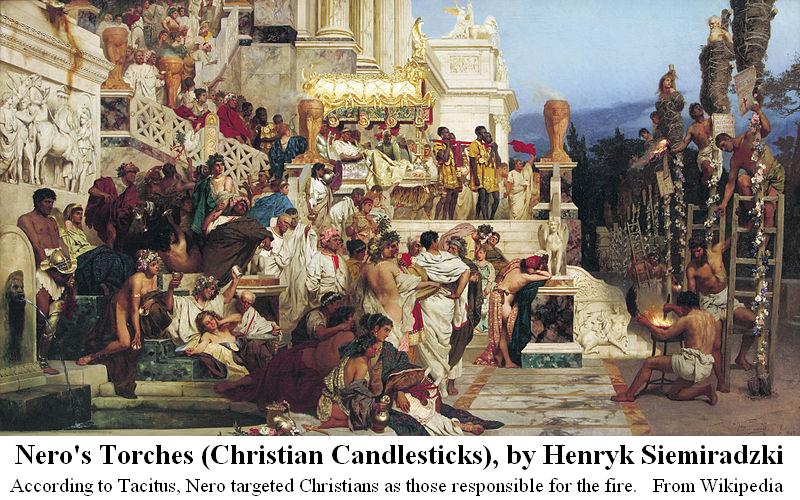 While Roman governors for Judea and Herod royal family were generous to the Jerusalem church and even showed intimate attitude to it from its inception, the central government of Rome seems to have had more consideration for mainstream of Judaists in order to maintain entire security of Judea. Both Felix and Festus were committed to deal with the matter regarding the Roman practice of creating civic privileges for Jews during their term of office. (Wiki in English) On the other hand, members of the Synagogue of the Freedmen who enjoyed Roman civic privileges, members of the Sanhedrin led by the High priest, Herod royal family and the Jerusalem church all accepted the rule of Rome and tried to maintain and expand their strength under the rule. However, the honeymoon between Rome and Israel seems to have to have ended because Zealot and its most notorious faction the Sicarians, who rebelled against Roman rule by arms, were supported by more and more people and rose rapidly.<To be continued> 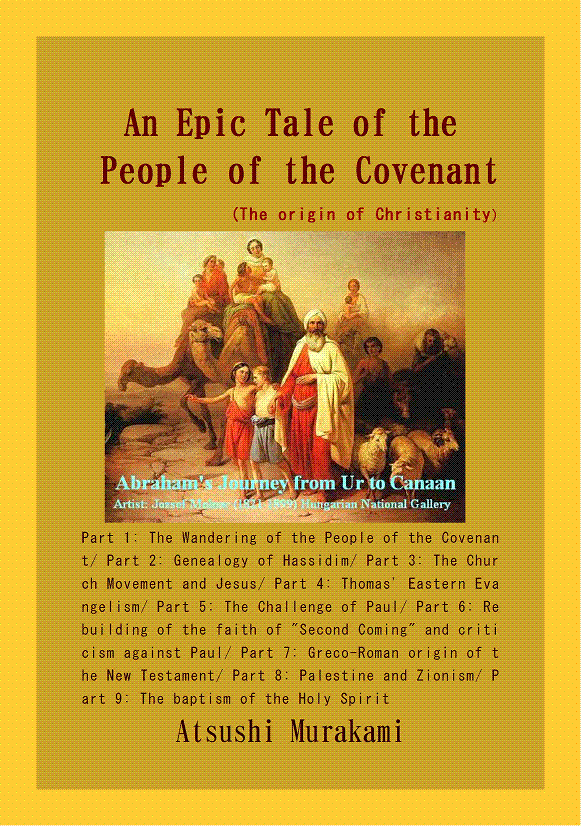 ○What is "Baptism with The Holy Spirit"? According to the dialectic of the Gospel of John, 【Thesis】"A man can possess eternal life through accepting testimony of the Son of man and being baptized by him." (John 5:24) 【Anti-thesis】But "The one who comes from the earth cannot accept the testimony by one from heaven."(John 3:32) How then can a man possess eternal life? 【Synthesis】"If you want to be baptized with the Holy Spirit, you can just go back to the word which was with God in the beginning (John 1:1) and certify that God is truthful. (John 3:33)" When he said, "You are Huichao," Zen Master Fayan thrusted vivid Self in Huichao in front of his eyes. Purchase here Your Comments / UnsubscribeSEAnewsFacebookSEAnewsGoogleSEAnews eBookstoreSEAnews eBookstore(GoogleJ) |
|
[Your Comments / Unsubscribe]/[您的意见/退订]/[ご意見/配信停止]
Please do not directly reply to the e-mail address which is used for delivering the newsletter. 请别用递送新闻的邮件地址而直接回信。 メールをお届けした送信専用アドレスには返信しないで下さい。 |